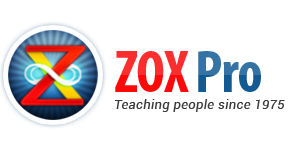Mentoring vs Coaching
[Transcription of Photographic Memory Podcast 12]
Neil Haley: Hi everyone and welcome to the photographic memory podcast. I’m excited to welcome Dr. Shannon Panzo, Dr. Shannon, how are you?
Dr Shannon Panzo: Hey, I’m doing great as usual. How about yourself there Neil?
Neil Haley: I’m doing great. It’s again starting to warm up a little bit, you know, we’re dealing with different things, exciting times, busy times and always excited to have the photographic memory expert, brain management expert and also a mentoring expert. He does mentoring, we’ll learn about that today.
So basically you’re a mentor and that’s a lot different than coaching in certain ways. Can you define the difference between mentoring and coaching?
Dr Shannon Panzo: Okay. Coaching… the first thing that you have to remember about coaching is people don’t actually need to be qualified to, or necessarily have the experience, to be a coach.
Consider a professional tennis player. The person that may be coaching the professional tennis player may not be a tennis star himself. He may be a tennis player, he may be well down the ranks, but he’s coaching the tennis all-star. Okay, it’s kind of contradictory, and whenever you take a look at team sports, you also look at the coaches for team sports.
Well, where do we actually have a big difference between this type of mentoring that I’m talking about and coaching team sports is team sports always rely on the team; which can only be as strong as the weakest link.
This is why everyone has to be strong within a team, otherwise, the weakest link is the best that the team can do. So really when you’re talking about coaching, you’re talking about development, development of skill sets, etc. It’s not necessarily going to be something that is really going to be life-changing or life-enhancing in those ways.
Now, some people will take it a step further simply because they don’t understand what the difference is. I have heard so many different problems that come from people hiring a coach, and then they find out that that coach cannot fulfill what their needs are. Therefore, they spend a lot of money and a lot of time with them, and they are no further ahead.
Well, I don’t believe in that, I don’t work that way at all, that’s why I do “mentoring”. There is a significant difference, even in the definition, if you want to go onto Google and define what the differences are between coaching and mentoring, you’ll see that there are specific differences. One of the key differences is you’re building a relationship so that you can walk side by side with that person, leading that person through the obstacles in order to get to where they’re going.
Also, experience is critical, so essentially a mentor is an experienced and trusted advisor to not only provide the tools but also to provide that trust factor.
Neil Haley: That’s interesting.
So what’s the difference between a mentor and a consultant?
Dr Shannon Panzo: It’s funny you should bring that up.
I had the opportunity early on to become a consultant and I quickly found out that I didn’t really want to be a consultant because, in order to be a consultant, at least in my experience, you needed to understand how to stretch the truth.
Most consultancies that I was looking at, were a matter of vindicating companies in what they are doing and making their actions look right, in order to vindicate their actions whether those actions be right or wrong.
So that’s kind of a weird little point there, but when I looked at the consultant path, I don’t want to go there because that isn’t necessarily the honest path or the truthful path.
I’m looking for truth. I’m looking at honesty. I never lie to my clients. I don’t lie to my clients because if I lie to them and they lie to me, I can’t help them. We have to be working in truth for me to be able to help them.
Neil Haley: What qualities should you see in a mentor?
Dr Shannon Panzo: Qualities? Well, the main thing with a mentor is you have to have certain abilities. You have to have the ability to be flexible because you’re dealing with people from all walks of life.
Now you can be a mentor specifically for business, specifically for relationships, specifically for personal, it really depends upon the mentor. I deal with all levels; I deal with things on a very holistic level. What that brings into focus is where does your experience lie?
Well, I have a lot of experience which makes me flexible at helping my clients with holistic experience; it ranges in a lot of areas. I’m blessed to be able to deal with so many different types of people. I deal with people from all over the world, all different religions, all different backgrounds. I don’t really seem to have too many limitations as the type of people that I deal with.
So that gives me a great avenue to be able to help people. When it comes to tools, if you’re looking for a mentor then your mentor should have a toolbox that they can share with you so that you can become better by using that toolbox and the mentor should know so much about that toolbox that they can show you all different ways to use that toolbox to make your life better in every way.
Whenever you have people that are professionals, they go to work, if they have a bad day at work, they bring it home. If they have a bad day at home, they take it to work.
So really you don’t separate the two, you’re dealing with a whole person, you’re dealing with a whole individual and that person needs to be treated holistically. What affects one part also affects another.
Neil Haley: Right.
Dr Shannon Panzo: So this is where I really enjoy myself because I get to help individuals, not necessarily team players, but people that want to stand above the rest, the individuals, and I get to help them on a holistic level to make all parts of their life better.
Neil Haley: It makes complete sense. And that’s why the value of it is you’re taking them down the road, you’re making sure that you give them the tools necessary for that road, but you’re not directing and say do this way, you listen to them, you provide guidance where they need to go next.
Dr Shannon Panzo: Right. So as the way that I go about doing things, all of my mentoring is through discussion. This allows me to pick up on nuances that the individual has going on and allows me to approach things in a way which is unique to that person. I have a great memory.
So I can pick up on things 2, 3 months down the way that were in some of the original conversations and link the two together simply through my ability to use my memory and pull it all together. Then we can say, “You’ve been ignoring this point. Let’s take a look at it, see where it gets you”, and so we can approach things in a very nice way and make accomplishments where they may not have actually realized there was something there to be dealt with.
Neil Haley: All right, so awesome. This topic is very interesting, the podcast can go in different directions, but where can we get mentoring right now? Where can we go?
Dr Shannon Panzo: Well there’s going to be some new links being put up on ZOX Pro.com. But currently, if you want to know about mentoring, what you should do is go to Brainmangement.com Now that’s a different site than what I usually talk about but I’ll give you a warning.
I do use the word coaching on that page because this is the internet and I use the word coaching for SEO purposes only. I sincerely don’t like the word because it’s been totally overused and abused. So, you know, I’m a Mentor.
Neil Haley: At ZOX Pro.com as well.
If you want to sign up for ZOX Pro today for the photographic memory, mental photography, and brain management, again ZOX Pro.com for more information and then you can check out all the different social media sites for Dr. Shannon on Twitter, Facebook, and also LinkedIn.
So I appreciate it. Dr. Shannon. Great episode today. Great information about mentoring and I appreciate you coming by.
Dr Shannon Panzo: Thank you very much. Thank you for having me.
Neil Haley: All right, That was the photographic memory podcast. Take Care guys.


Recent Comments